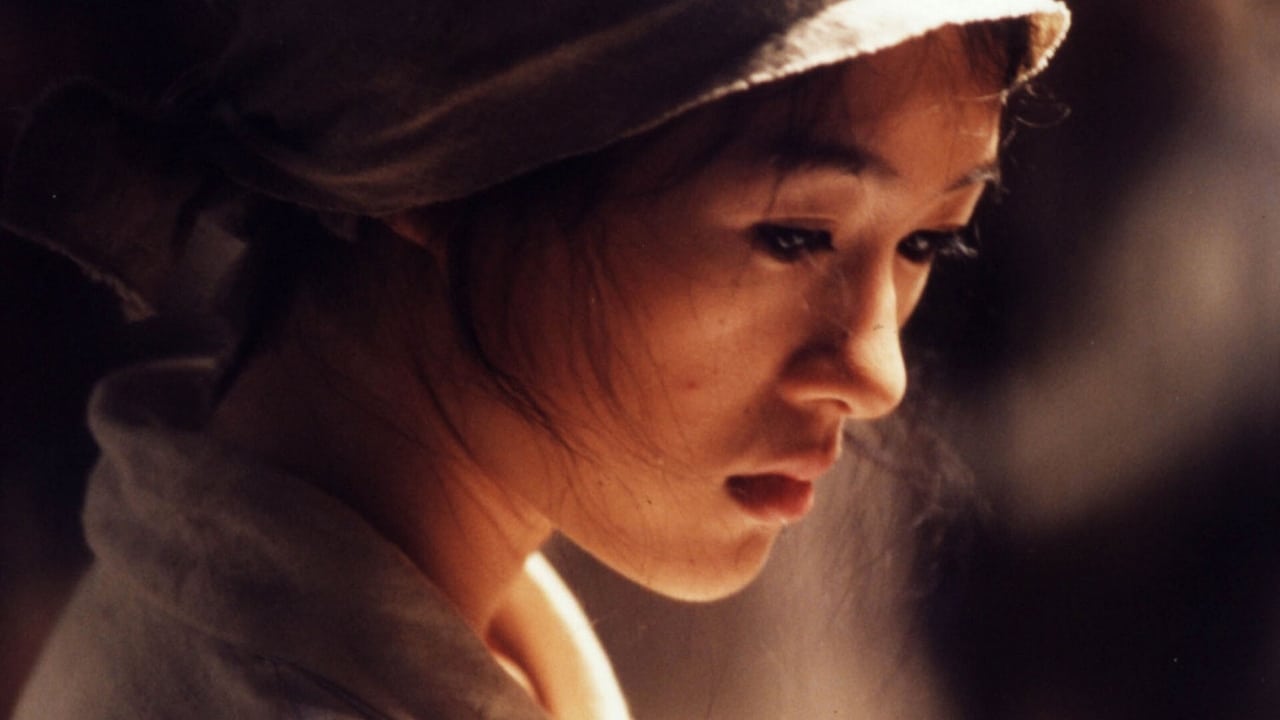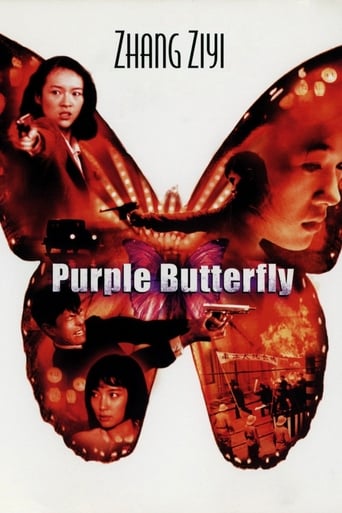Mjeteconer
Just perfect...
filippaberry84
I think this is a new genre that they're all sort of working their way through it and haven't got all the kinks worked out yet but it's a genre that works for me.
Aneesa Wardle
The story, direction, characters, and writing/dialogue is akin to taking a tranquilizer shot to the neck, but everything else was so well done.
Sienna-Rose Mclaughlin
The movie really just wants to entertain people.
Paul Childs
*Spoilers* I've seen a few reviews carrying the opinion that Cynthia wasn't in love with Itami but Xie Ming based on the final love seen, but it doesn't quite seem to fit. They talk about it being a year since they had a fling and it is expressed as being a physical thing. He sure doesn't cut it as a lover and for her sex is more a celebration of being alive in the midst of tragedy. There is however a moment of emotional intimacy but not such that I can conclusively tell if it expresses feelings of the moment or if there's anything more. The film hints at more emotional interaction existing with Szeto. Cynthia seems to be torn between her feelings for Itami, the ideology of the group, and her distaste for violence used by it (shooting of Szeto early on). Her desire to use him seems a thin veil for her compassionate side. I think she is trying to hold her cards and has feelings all round (Itami re: memories of an age of innocence in childhood, Xie Ming re: her ideological side, maybe even Szeto for having both shared the loss of a loved one) In the end any love she has for Itami seems to be made void as after he discloses that Japan has successfully invaded, her going with him to Tokyo could no longer be made as an act of love but as an act of self preservation. She also sees the same coldness in Itami that has distanced her from Xie Ming. Enter Szeto and we have the traditional Chinese love tragedy wrapped up. I feel the film didn't say much but left a lot open to interpretation and speculation. It can leave a viewer with any number of impressions based on how they see and identify with the feelings portrayed. Some may see it as complex, others straightforward, but all can take away something from it. My preference would be to have a more complete picture by filling in the back story rather than just centring around Cynthia and Itami, but it did tell a good story in a natural way.
bigrichry
This starts in 1928 with a young Chinese female student and a perhaps slightly older Japanese male student in Manchuria. He is at least being groomed to promote reactionary Japanese interests prior to a war and she is just a tender thing sucked in by the more worldly man. They go to bed together before he announces he is being recalled to his own land.Four years later the foreign conquest is underway and another love story is shown with less emphasis on sex.Another 5 years and things are boiling. The Japanese are more or less in control and a well concealed "Purple Butterfly counter insurgent group is hard at work messing up the new regime.The first girl is quite involved in the native movement when she sees her prewar lover returned for direct management action especially getting rid of the resistance. She now has quite mixed feelings remembering her schoolgirl love and wanting to further the protection of her country. Like a good girl she reports her finding of the Japanese boy and is taken aback when instructed to reaffirm a relationship with him to help the local cause. As this is very much a life-and death business, her quandary is interesting to watch. There is not right-or-wrong answers or even good-or-bad. Further the young Japanese man is confused whether she is a lover to be counted on or a detested spy to be destroyed. Watching this story unfold keeps the movie alive despite the desolation of the times and the destruction of war all acted out in constant downpour and dull and smoky lighting.As much as I would also like to have seen more light and life, I am not sure the important love-hate story could have been maintained therein.I had debated whether to pick this up at Blockbuster and am not sure I made the right choice. My heart aches for these people.
Aan
While the story might give one an eye sore and a headache having to keep up with the multiple characters in the storyline, there is an air of independent film-making that transcends the film's confusion. One should also note how excellent the camera-work is for those who enjoy the Italian Neo-realist films of the 1940's and 50's.This film is perhaps one of the most interesting of films on Chinese history told from the perspective of the Chinese themselves. The background, actors, crowded train stations and gunfights, would seem difficult to recreate in an independent film. However, the director succeeds in creating 1930's Japanese occupied Shanghai and how war affects those who are involved, both politically & non-politically. For anyone who hasn't seen a film from China other than the heavily laden Kung Fu movies made here in the U.S., Purple Butterfly is both a refresher and an excellent look at Neo-Realism in Chinese Cinema today.
aliasanythingyouwant
There are a few things director Ye Lou likes more than I do: silent, open-mouthed screams, rain and quick dissolves. His movie Purple Butterfly is composed mainly of these things, with glimpses in-between of a story about two lovers caught up in the Japanese occupation of Manchuria during the '30s.I know what I'm supposed to think of this movie: it's a tone-poem, an evocation of some deeper mood, something running below the surface of the action. But I can't help feeling that the whole exercise would've been more worthwhile had the director demonstrated less ambition and more good old-fashioned story-sense.There are these two people, one a Chinese woman working for the underground, the other a Japanese fellow toiling for his country's secret-service. We know they're lovers because we see them in bed together, but for at least half the movie, we have no real idea who these people are, what their roles are in the drama that appears to be playing out before us. Now, I'm no dummy, and certainly don't require everything to be spelled-out for me in the dopey terms of most Hollywood movies, but I do appreciate it when the director makes at least a cursory effort at filling me in on the details of the story, like who people are and why I should care about them.The movie doesn't let you get a food-hold, it's too busy being poetic and rainy and surpassingly glum. This might be all right if the images had some great plastic beauty, but the blue-toned pictures Ye Lou puts in front of us, dissolving from one to the next like he's putting on a museum slide-show of Chinese history, are not exactly the best eye-candy I've seen lately. As an exercise in image and cutting the film is not hall-of-fame material.The stuff of good cinema is there in Purple Butterfly, but it's buried under too many layers of Cinema.

